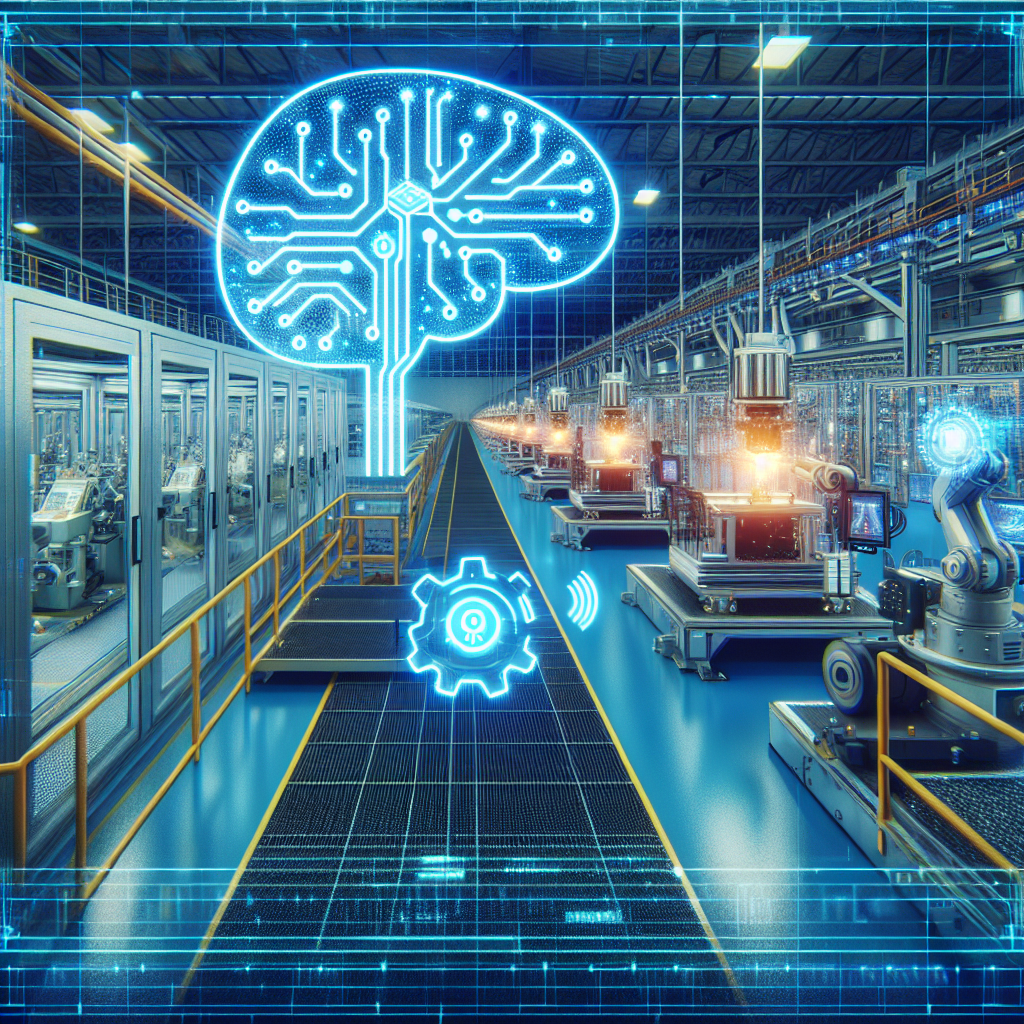In today’s fast-paced manufacturing industry, ensuring quality control is essential for maintaining high standards and meeting customer expectations. Traditional quality control methods involve manual inspection processes that can be time-consuming, costly, and prone to human error. However, with the advancement of artificial intelligence (AI) technology, manufacturers now have the option to implement AI-powered predictive quality control systems to improve efficiency and accuracy.
AI-powered predictive quality control systems use machine learning algorithms to analyze large amounts of data collected from various sensors and devices throughout the manufacturing process. By analyzing this data, the AI system can predict potential defects or issues before they occur, allowing manufacturers to take proactive measures to prevent quality issues and ensure the production of high-quality products.
One of the key benefits of AI-powered predictive quality control is its ability to detect defects early in the manufacturing process, reducing the likelihood of defective products reaching the end consumer. By analyzing real-time data and identifying patterns or anomalies that indicate potential defects, manufacturers can address issues before they escalate, saving time and money in the long run.
Another advantage of AI-powered predictive quality control is its ability to optimize production processes and improve overall efficiency. By analyzing data from various sources, such as production equipment, supply chain logistics, and customer feedback, the AI system can identify areas for improvement and recommend changes to streamline operations and increase productivity.
In addition, AI-powered predictive quality control systems can help manufacturers reduce waste and minimize environmental impact by identifying opportunities to optimize resource utilization and reduce energy consumption. By analyzing data on production efficiency and waste generation, the AI system can suggest ways to minimize waste and improve sustainability practices.
Overall, AI-powered predictive quality control systems offer manufacturers a powerful tool for improving product quality, increasing efficiency, and reducing costs. By leveraging the capabilities of AI technology, manufacturers can stay ahead of the competition and meet the demands of today’s fast-paced manufacturing industry.
FAQs:
Q: How does AI-powered predictive quality control work?
A: AI-powered predictive quality control systems use machine learning algorithms to analyze data collected from various sources, such as sensors, devices, and production equipment. By analyzing this data, the AI system can identify patterns or anomalies that indicate potential defects or issues in the manufacturing process. This allows manufacturers to take proactive measures to prevent quality issues and ensure the production of high-quality products.
Q: What are the benefits of AI-powered predictive quality control?
A: Some of the key benefits of AI-powered predictive quality control include early detection of defects, optimization of production processes, improved efficiency, reduced waste, and minimized environmental impact. By leveraging AI technology, manufacturers can improve product quality, increase productivity, and reduce costs.
Q: How can manufacturers implement AI-powered predictive quality control?
A: Manufacturers can implement AI-powered predictive quality control by partnering with AI technology providers or developing in-house AI capabilities. By collecting and analyzing data from various sources, manufacturers can train AI algorithms to predict potential defects or issues in the manufacturing process. Once the AI system is trained, manufacturers can integrate it into their production processes to improve quality control.
Q: What industries can benefit from AI-powered predictive quality control?
A: AI-powered predictive quality control can benefit a wide range of industries, including automotive, electronics, pharmaceuticals, aerospace, and consumer goods. Any industry that relies on manufacturing processes can leverage AI technology to improve quality control, increase efficiency, and reduce costs.
In conclusion, AI-powered predictive quality control systems offer manufacturers a powerful tool for improving product quality, increasing efficiency, and reducing costs. By leveraging the capabilities of AI technology, manufacturers can stay ahead of the competition and meet the demands of today’s fast-paced manufacturing industry.

